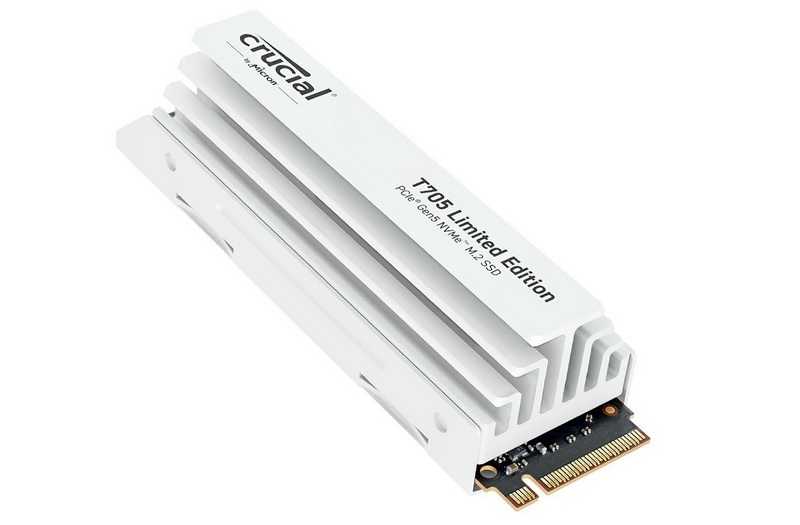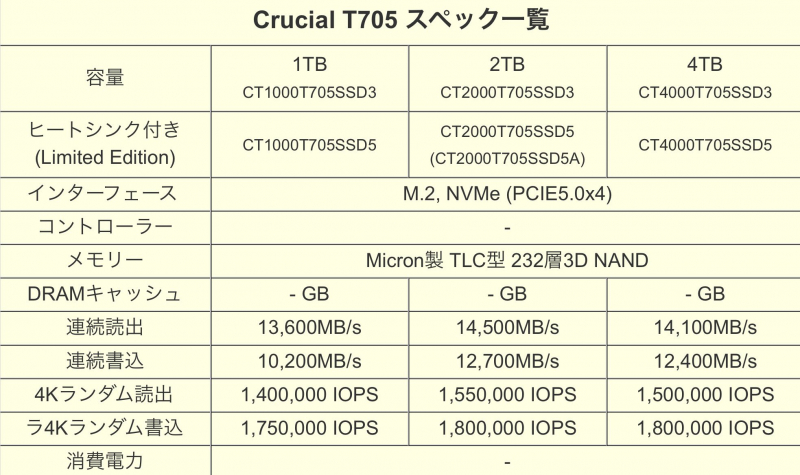Leading consumer tech firm Crucial was amongst the first to initiate mass production of consumer solid-state drives (SSDs) that adhered to the PCIe 5.0 standard last year. Their entry level SSD product, the T700, boasted of a remarkable speed of up to 12 GB/s in sequential reading and writing. This performance was seen to outperform those of the PCIe 4.0 standard, however, it still fell short of the computational capabilities of the PCIe 5.0 standard itself. Crucial plans to leverage this standard with their new SSD T705 series.
News outlets report that Crucial is in the process of developing SSD T705, which is predicted to deliver sequential reading speeds approaching 14,500 MB/s, thus being one of the fastest SSDs that complies with the PCIe 5.0 standard in the consumer market. According to insider reports, the newcomers are expected to be available both with and without a heatsink. Additionally, a special version fitted with a white heatsink is anticipated.

As of now, details regarding the memory controller in Crucial’s new model SSD T705 remain undisclosed. To give reference, the Crucial T700 utilises the first-generation flagship controller Phison E26. This leads to speculation that the new model might incorporate the same controller, but with faster memory chips, akin to the benchmark SSD Phison E26 Max14um.

Leaked information suggests that the new Crucial T705 will integrate 232-layer TLC 3D NAND flash chipsets from Micron, the parent company of Crucial. Reportedly, the fastest model in the series would be the 2 TB version, delivering a sequential read speed of 14,500 MB/s and a sequential write speed of up to 12,700 MB/s. Additionally, the series will include a 4 TB model that would be slightly slower than the 2 TB version, and a 1 TB variant that would be the slowest amongst the three. However, all three newcomers are promising to be significantly faster than the initial PCIe 5.0 standard SSDs offering speeds of 10–12 GB/s.
The pricing details of the Crucial T705 SSDs are yet to be revealed. There is currently no information on when the new model will be commercially available.





